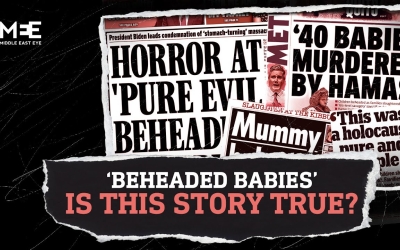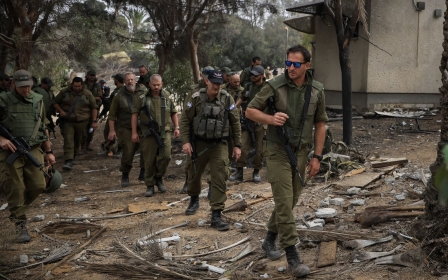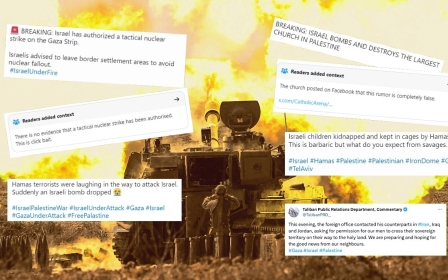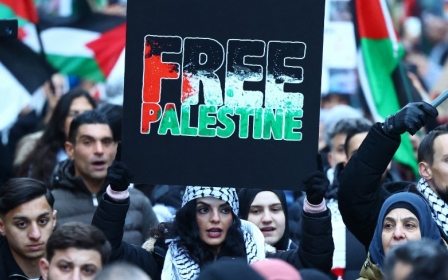Israel-Palestine war: Israeli personnel gave false information about 7 October attack crimes - report
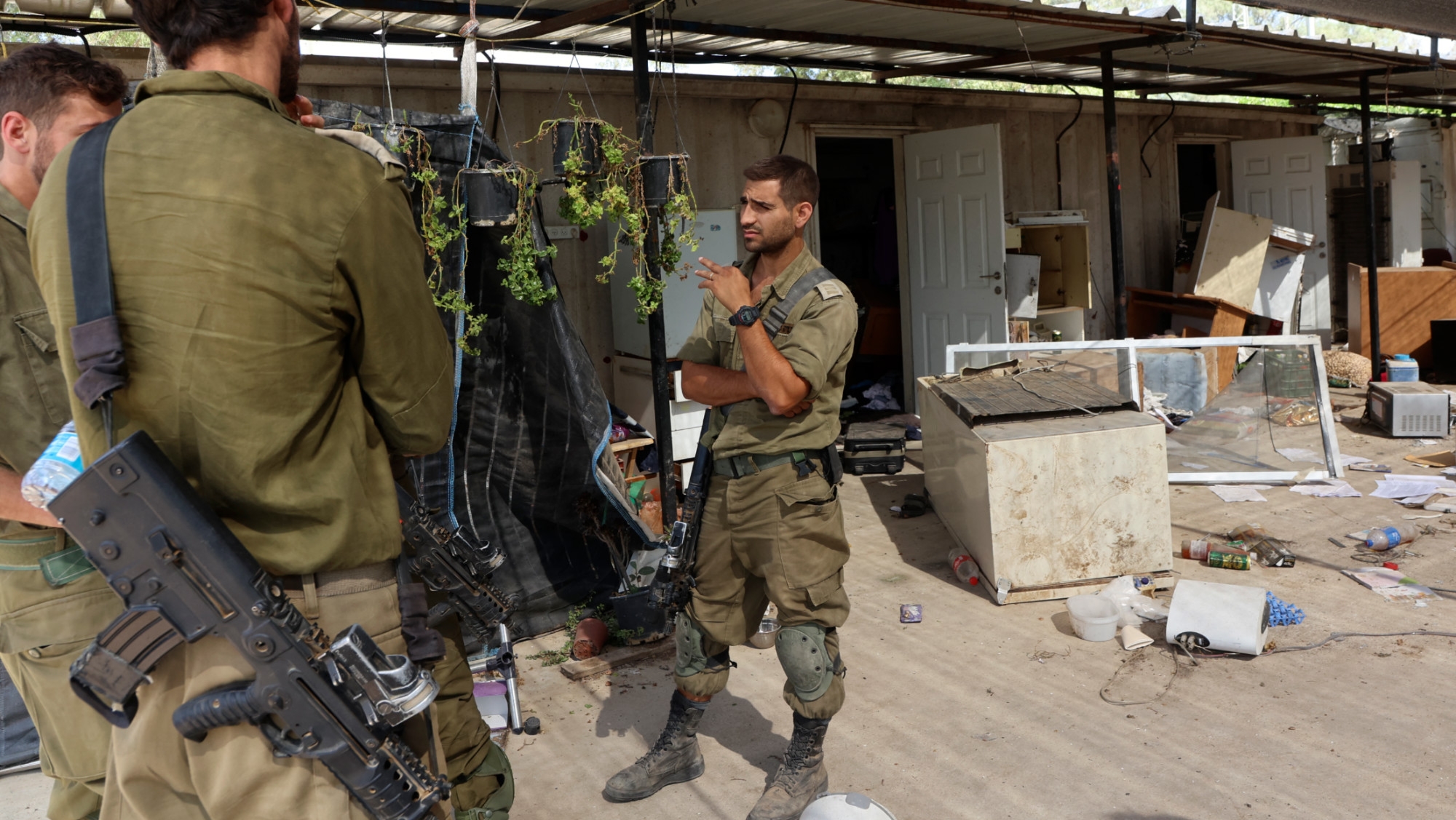
A leading Israeli newspaper has detailed how unverified and inaccurate accounts of the 7 October Hamas attack led to the publication of stories that appear to be false.
Some of the details behind these stories, which described atrocities purportedly committed by Palestinian fighters, were provided by Israeli officials and soldiers as well as search and rescue volunteers.
However, Haaretz cross-referenced some of these allegations in a report published on Sunday and found that they did not add up.
The Israeli army admitted that mistakes were made by at least one soldier who fed one of the stories.
Zaka, a volunteer search and rescue organisation that worked at the scene of the attacks and provided testimonies to the media, also said some of its members may have “misinterpreted” what they saw and that they were not professional pathologists.
New MEE newsletter: Jerusalem Dispatch
Sign up to get the latest insights and analysis on Israel-Palestine, alongside Turkey Unpacked and other MEE newsletters
One of the main topics allegedly riddled with unconfirmed reporting and misinformation was the death of children and babies, according to Haaretz.
'Beheaded babies'
On 7 October, hundreds of Palestinian fighters stormed southern Israel, attacking military outposts, bases and residential areas. Around 1,200 Israelis were killed during the attack.
In the absence of an official Israeli list of the victims, Haaretz has produced a list of confirmed fatalities, which includes more than 30 children. The list is not complete, as forensic work continues.
Follow Middle East Eye's live coverage for the latest on the Israel-Palestine war
Days after the attack, a story published by Israel's i24 news channel, which later made front-page headlines around the world, alleged that 40 babies had been beheaded.
As doubt over the story’s veracity began to mount, other unconfirmed versions of alleged atrocities against children and babies began to emerge.
They included an account by Golan Vach, head of the Israeli military search and rescue service, who claimed to have seen the bodies of burned babies.
Last week, an Israeli reporter shared an interview with a soldier who claimed “babies and children were hung on a clothesline in a row".
According to Haaretz, these allegations were false.
Information gathered from the National Insurance Institute of Israel, police officers and Kibbutzim leaders showed that one baby had been identified among those killed so far, with the identification process all but done.
Other young children killed on the day included a four-year-old, two six-year-olds and two five-year-olds.
The majority of children killed were aged between 12 and 17, with some killed from rocket fire.
According to Haaretz, a military spokesperson said the soldier who fed the “children hung on a clothesline” story was a reservist who did not speak in an official capacity.
The military denied his claims.
No available evidence
Regarding Vach’s testimonies, the military said he misspoke by saying babies when he meant to say children.
Another false claim was made by Israeli Prime Minister Benjamin Netanyahu, who told US President Joe Biden that Palestinians “bound dozens of children” together, burned them and executed them.
There is no available evidence to suggest groups of children were found dead in the same location that match the description provided by Netanyahu, according to Haaretz.
Another false claim was made by Netanyahu, who told Biden that Palestinians 'bound dozens of children' together, burned them and executed them
Another story claimed that an Israeli baby was found burned in an oven, which originated from Eli Beer, the president of United Hatzalah of Israel, a volunteer emergency medical services organisation.
Haaretz also found this story to be false. A source from United Hatzalah told Haaretz the claim originated from a volunteer who thought he saw that baby and relayed it to Beer inaccurately.
Other accounts provided by the Zaka volunteer group also appeared to be inconsistent with available information on the ages and locations of those killed.
One of the group members said he saw 20 burned bodies of teenagers in Kfar Aza and 20 others in Be'eri.
These figures did not match the details of children killed in those communities.
'Misinterpreted'
Haaretz said two minors, aged 14 and 16, had been identified among those killed in Kfar Aza so far.
In Be'eri, a total of nine minors were killed, most of them found dead in their homes with their families.
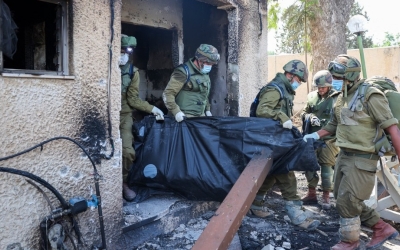
The same Zaka volunteer claimed to have seen the body of a shot pregnant woman in Be'eri with her stomach ripped open and the foetus attached to her stabbed.
He said two children, aged six and seven, were found dead next to her.
However, of the 87 people killed in Be'eri, none were aged six and seven, Haaretz reported.
Regarding the alleged shot pregnant woman, Be'eri residents doubted the incident happened in their community.
Police also said they were not aware of it. A source at the Shura military camp, where bodies were being identified and prepared for burial, denied having any knowledge of it.
In response to Haaretz's questions, Zaka said the volunteers may have “misinterpreted what they saw”.
“The volunteers are not pathology experts and have no professional tools to identify the murdered person and their age, or to declare the manner in which they were killed,” Zaka said.
This article is available in French on Middle East Eye French edition.
Middle East Eye delivers independent and unrivalled coverage and analysis of the Middle East, North Africa and beyond. To learn more about republishing this content and the associated fees, please fill out this form. More about MEE can be found here.


